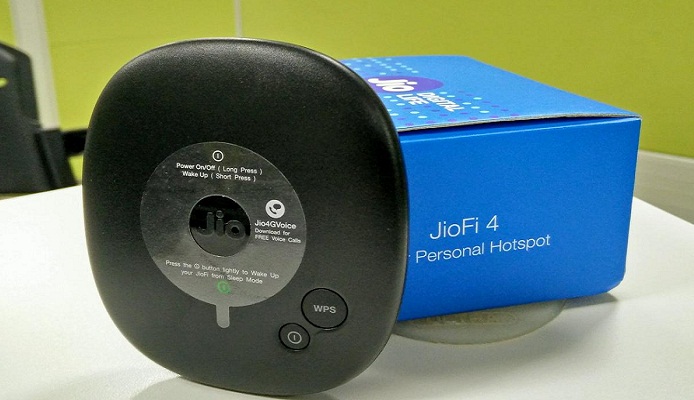Impact of AI and Machine Learning in Healthcare Record Retrieval Solutions

The healthcare industry is undergoing a significant transformation fueled by advancements in technology, and one of the most groundbreaking developments is the integration of Artificial Intelligence (AI) and Machine Learning (ML) into various aspects of healthcare.
From diagnostics to treatment planning, AI and ML are revolutionizing patient care. This article will delve into their impact on healthcare record retrieval solutions, highlighting their potential to enhance efficiency, accuracy, and patient outcomes.
Table of Contents
Understanding AI and Machine Learning in Healthcare: A Focus on Record Retrieval Services
Medical record retrieval services are essential to modern medical practice, ensuring that healthcare professionals and other authorities (i.e., lawyers, billers, and patients themselves) have timely access to patient data for informed decision-making. Here’s how AI and ML are transforming the landscape of record retrieval.
Automating Data Extraction and Organization
AI and ML algorithms automate repetitive tasks, making them ideal for extracting and organizing data from diverse sources. In the context of record retrieval, these technologies can swiftly extract relevant information from electronic health records, medical reports, and other sources, significantly reducing the time and effort required for manual data entry.
Intelligent Search and Data Querying
Searching through vast medical records can be time-consuming and prone to errors. AI and ML algorithms can create intelligent search systems that understand natural language queries, enabling healthcare professionals to quickly retrieve specific information from records. This capability streamlines the record retrieval process, providing more efficient patient care.
Data Analysis for Predictive Insights
AI and ML excel in analyzing large datasets to identify patterns and trends. When applied to healthcare record retrieval, these technologies can assist in identifying predictive insights, such as disease progression or treatment effectiveness. This proactive approach empowers healthcare providers to make informed decisions that positively impact patient outcomes.
Enhancing Clinical Decision-Making
Accurate and timely access to patient records is essential for making informed clinical decisions. AI and ML can identify relevant data points, suggest potential diagnoses or treatments based on historical data, and highlight research pertinent to support healthcare professionals’ decision-making process.
Improving Care Coordination and Continuity
Care coordination and continuity are crucial for patient well-being in complex healthcare systems. AI and ML technologies facilitate the seamless sharing of patient information among healthcare providers, ensuring that every healthcare professional involved in a patient’s care has access to the most up-to-date and relevant medical records.
Addressing Privacy and Security Concerns
With the integration of AI and ML, concerns about data privacy and security are paramount. Advanced encryption techniques and data anonymization methods can be employed to ensure that patient records are protected while still being accessible to authorized personnel. Additionally, AI algorithms can monitor data access and usage patterns, alerting administrators to potential breaches.
Challenges and Limitations of AI and ML in Record Retrieval
While integrating Artificial Intelligence (AI) and Machine Learning (ML) holds immense potential to revolutionize healthcare record retrieval, several challenges and limitations must be addressed to ensure successful implementation and utilization. These challenges highlight the complexities in harnessing AI and ML for such a critical aspect of healthcare.
- Data Quality and Accuracy: AI and ML algorithms heavily rely on high-quality and accurate data for effective functioning. In healthcare record retrieval, discrepancies or inaccuracies in patient records can lead to incorrect conclusions or recommendations. Data cleaning and preprocessing are crucial to ensuring the reliability of AI and ML models, but this process can be time-consuming and resource-intensive.
- Algorithm Bias: AI algorithms can inherit biases in the data they are trained on, potentially leading to unequal treatment or recommendations. In healthcare record retrieval, biased algorithms could result in differential access to medical information for different groups of patients. Mitigating algorithmic bias requires careful curation of training data and ongoing monitoring of algorithm behavior to identify and rectify any biased patterns.
- Ethical Considerations: Using AI and ML in healthcare record retrieval raises ethical questions about patient privacy and consent. Ensuring that patient data is used in compliance with privacy regulations and obtaining informed consent for AI-driven analyses is crucial to maintain patient trust and to adhere to ethical standards.
- Interoperability Challenges: Healthcare systems often use a variety of formats and standards for storing and exchanging patient records. Integrating AI and ML solutions into existing systems can be challenging due to interoperability issues. Standardizing data formats and ensuring seamless integration with various electronic health record (EHR) systems are essential but complex tasks.
- Complexity of Medical Records: Medical records can contain complex and nuanced information, including unstructured data such as physician notes and diagnostic images. Teaching AI models to interpret and extract meaningful insights from this diverse range of data requires advanced natural language processing and image recognition capabilities, which can be challenging to develop and fine-tune.
- Data Privacy and Security: As AI and ML solutions handle sensitive patient information, data privacy and security are paramount. Ensuring patient records are protected from unauthorized access or breaches is a significant challenge. Robust encryption, secure access controls, and continuous monitoring are necessary to safeguard patient data.
- Lack of Transparency: Complex AI and ML models can be difficult to interpret, leading to a lack of transparency in decision-making. Healthcare professionals might be hesitant to rely on AI-driven recommendations if they need help understanding the rationale behind them. Efforts to develop explainable AI techniques aim to address this limitation.
- Resource and Infrastructure Requirements: Implementing and maintaining AI and ML solutions require substantial resources, including computational power and skilled personnel. Smaller healthcare facilities or those in resource-constrained environments might need help to adopt and sustain these technologies.
- Continuous Learning and Adaptation: Healthcare is an evolving field with new medical knowledge and practices emerging regularly. AI and ML models must be continuously updated and adapted to stay relevant and effective. This ongoing maintenance can be resource-intensive and require a commitment to keeping up with the latest developments.
- Regulatory and Legal Challenges: The healthcare industry is heavily regulated, and introducing AI and ML solutions requires navigating a complex landscape of regulatory frameworks. Ensuring compliance with regulations such as HIPAA while integrating AI into record retrieval processes demands careful attention to legal considerations.
Final Thought
In a rapidly evolving healthcare landscape, embracing the power of AI and machine learning in record retrieval solutions is crucial. Record Retrieval Solutions, headquartered in Florida and backed by strategic partnerships with industry leaders and governing bodies nationwide, are committed to staying at the forefront of cutting-edge technologies.
With decades of experience and a dedication to adhering to legal requirements and regulations, they provide seamless, efficient, and secure record retrieval services. Get access to advanced record retrieval and important health records while knowing it’s secured. Join them in shaping the future of healthcare record retrieval.




